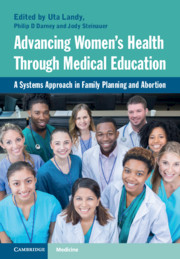Report on Legal Proceedings Concerning Reproductive Rights in Malawi and aLinkage to Sustainable Development Goals
Case Summary: Civil Cause No. 162 of 2023
In January 2025, the High Court of Malawi granted the Center for Reproductive Rights’ Africa Program the status of Amicus Curiae (“friend of the court”) in a significant case concerning access to safe abortion services. The case, AC & Others v. Jenala Solomon & Others, was initiated on behalf of a 13-year-old girl who became pregnant following a sexual assault. The petitioner, AC, was denied an abortion by a health officer despite clear and subsequently confirmed risks to her life posed by the pregnancy. This denial of care is being challenged as a violation of Malawi’s 2013 Gender Equality Act (GEA), which guarantees rights to sexual and reproductive health.
This case directly addresses several Sustainable Development Goals (SDGs), primarily focusing on ensuring health, achieving gender equality, and promoting justice.
Intersection with Sustainable Development Goals (SDGs)
SDG 3: Good Health and Well-being
The case is fundamentally linked to SDG 3, particularly Target 3.7, which aims to ensure universal access to sexual and reproductive health-care services. The refusal to provide timely care to a minor, whose life was endangered by the pregnancy, highlights systemic barriers to achieving this target. The unnecessary delay and distress caused to the petitioner underscore the critical need for accessible and responsive healthcare systems that protect the well-being of all individuals, especially vulnerable adolescents.
SDG 5: Gender Equality
The proceedings are a direct effort to advance SDG 5 by challenging discriminatory practices within the healthcare system. The case touches upon multiple targets within this goal:
- Target 5.1: The denial of care based on the nature of the required service represents a form of discrimination against women and girls.
- Target 5.2: By seeking justice for a survivor of sexual violence, the case addresses the need for systems that support and protect victims.
- Target 5.6: The core legal question—whether the GEA’s guarantee of sexual and reproductive health includes safe abortion access—is a direct test of Malawi’s commitment to ensuring universal access to reproductive rights.
SDG 16: Peace, Justice and Strong Institutions
The legal challenge utilizes the judicial system to enforce national law and uphold human rights, aligning with SDG 16. By seeking a definitive interpretation of the GEA, the case aims to strengthen the rule of law (Target 16.3) and promote non-discriminatory laws and policies for sustainable development (Target 16.B). The Center for Reproductive Rights’ role as Amicus Curiae contributes expert legal analysis to ensure the court’s decision is informed by constitutional principles and international human rights standards.
Legal Arguments and Systemic Implications
Amicus Curiae Submission
In its May 2025 submission to the High Court, the Center for Reproductive Rights emphasized that a proper interpretation of the GEA must align with Malawi’s broader legal and international commitments. The key arguments presented were:
- Access to safe abortion is integral to upholding survivors’ fundamental rights to health (SDG 3), dignity, and freedom from cruel, inhuman, and degrading treatment.
- The denial of such access disproportionately harms adolescent girls, who face elevated health risks and social stigma from early pregnancy, thereby exacerbating gender inequality (SDG 5).
- The GEA must be interpreted to include the full spectrum of sexual and reproductive health services, including abortion, particularly for survivors of sexual violence, to ensure non-discriminatory access to justice and care (SDG 16).
Potential Impact on Sustainable Development in Malawi
A favorable ruling in this case has the potential to create a significant legal precedent and catalyze systemic reforms, advancing multiple SDGs. The anticipated outcomes include:
- Legal Recognition: A ruling would formally establish that the GEA protects abortion access as a component of sexual and reproductive health, directly supporting the achievement of SDG 5.6.
- Accountability: It would reinforce the legal obligation of healthcare providers to offer timely, respectful, and comprehensive care, strengthening health systems in line with SDG 3.
- Reduced Discrimination: The decision would challenge the stigma and discrimination faced by survivors in healthcare settings, contributing to the goals of SDG 5.1.
- Systemic Reform: The precedent could drive broader reforms in Malawi’s health and legal frameworks, creating stronger institutions for justice and health as envisioned in SDG 16.
The admission of the Center for Reproductive Rights as Amicus Curiae is a procedural milestone that reinforces the use of strategic litigation as a tool to advance human rights and, consequently, the Sustainable Development Goals in Africa.
1. Which SDGs are addressed or connected to the issues highlighted in the article?
-
SDG 3: Good Health and Well-being
- The article directly addresses health by focusing on a case where a 13-year-old girl’s life was endangered by the denial of timely medical care. It discusses the “clear risks” a pregnancy posed to her health, the need for “safe abortion access,” and the broader right to “sexual and reproductive health.” The case challenges a health facility’s failure to provide “timely and adequate care,” which is central to ensuring healthy lives and well-being.
-
SDG 5: Gender Equality
- The entire legal challenge is based on Malawi’s “Gender Equality Act (GEA).” The article highlights issues of gender-based violence (the girl was a survivor of sexual assault), discrimination against adolescent girls in healthcare, and the fight for “sexual and reproductive rights.” The goal of the legal action is to ensure the GEA is interpreted to protect the rights of women and girls, particularly survivors of sexual violence, which is a core objective of achieving gender equality.
-
SDG 16: Peace, Justice and Strong Institutions
- The article details a legal process aimed at achieving justice and strengthening institutional accountability. It describes a “groundbreaking case” in Malawi’s “High Court” and the use of “strategic litigation” to advance human rights. The Center for Reproductive Rights acts as “Amicus Curiae” to support the “interpretation of the GEA in line with constitutional protections.” This demonstrates an effort to use legal institutions to ensure access to justice for survivors of violence and to catalyze “systemic reforms in Malawi’s legal and health systems.”
2. What specific targets under those SDGs can be identified based on the article’s content?
-
Target 3.7: Ensure universal access to sexual and reproductive health-care services.
- The article is centered on the lack of access to a specific sexual and reproductive health-care service: safe abortion. The case argues that the right to “sexual and reproductive health” under the GEA must include “access to safe abortion care for survivors of sexual violence.” The goal is to ensure services are not denied and that patients are informed of their options, directly aligning with this target.
-
Target 5.2: Eliminate all forms of violence against all women and girls.
- The case was initiated on behalf of a “13-year-old girl who became pregnant after being sexually assaulted.” The legal action is a direct response to the consequences of sexual violence and seeks to establish rights and protections for survivors, which is a critical component of eliminating violence against women and girls.
-
Target 5.6: Ensure universal access to sexual and reproductive health and reproductive rights.
- This target is explicitly addressed. The article discusses the “right to sexual and reproductive health,” the mission to “advance reproductive rights as human rights,” and the push for “sexual and reproductive rights in Africa.” The court’s decision will determine whether the GEA protects “access to abortion as part of comprehensive sexual and reproductive health and rights.”
-
Target 16.3: Promote the rule of law and ensure equal access to justice for all.
- The article describes the use of the judicial system (“High Court,” “Amicus Curiae,” “strategic litigation”) to enforce existing laws (the GEA) and ensure justice for a survivor of violence. The case challenges the “hospital’s failure to provide timely and adequate care” and seeks to make “healthcare providers accountable for upholding legal obligations,” which is a clear effort to promote the rule of law and access to justice.
3. Are there any indicators mentioned or implied in the article that can be used to measure progress towards the identified targets?
-
Legal interpretation and precedent (Implied Indicator)
- A key indicator of progress mentioned in the article is the outcome of the court case itself. A victory would “establish legal recognition that the GEA protects access to abortion” and “set a powerful precedent for the rights of survivors of sexual violence in Malawi and beyond.” This legal precedent is a measurable outcome that indicates progress towards Targets 3.7, 5.6, and 16.3.
-
Existence and enforcement of laws guaranteeing access to reproductive health (Implied Indicator)
- The article focuses on the interpretation and enforcement of Malawi’s 2013 Gender Equality Act. Progress can be measured by whether this law, and others like it, are interpreted and applied to guarantee access to the “full range of sexual and reproductive health services, including abortion care.” The accountability of healthcare providers to these legal obligations is a specific measure of enforcement.
-
Access to justice for survivors of violence (Implied Indicator)
- The case of “AC” serves as an example. An indicator of progress would be the ability of survivors of sexual violence to access justice and receive the necessary medical and legal support without “unnecessary delay and distress.” The success of this case and similar future actions would signify improved access to justice.
4. Table of SDGs, Targets, and Indicators
| SDGs | Targets | Indicators Identified in the Article |
|---|---|---|
| SDG 3: Good Health and Well-being | Target 3.7: Ensure universal access to sexual and reproductive health-care services. | Legal recognition that national laws (like the GEA) protect access to the full range of sexual and reproductive health services, including safe abortion. |
| SDG 5: Gender Equality |
Target 5.2: Eliminate all forms of violence against all women and girls.
Target 5.6: Ensure universal access to sexual and reproductive health and reproductive rights. |
Establishment of legal precedents that protect the rights of survivors of sexual violence.
Accountability of healthcare providers in upholding legal obligations to provide non-discriminatory care to women and girls. |
| SDG 16: Peace, Justice and Strong Institutions | Target 16.3: Promote the rule of law and ensure equal access to justice for all. | Successful use of strategic litigation to enforce human rights and constitutional protections.
Systemic reforms in legal and health systems to ensure they are responsive to the needs of survivors. |
Source: reproductiverights.org







